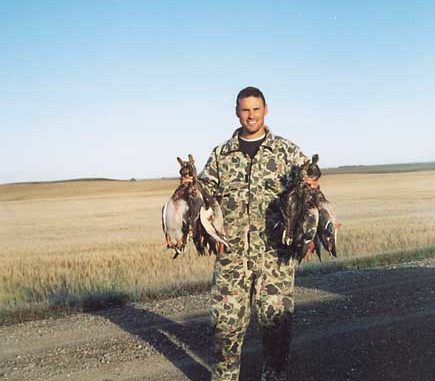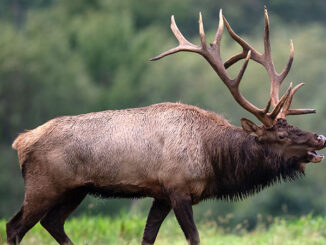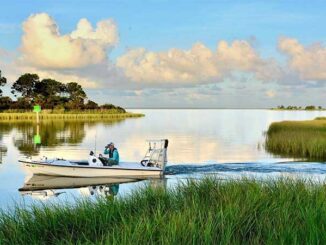
A road trip to Saskatchewan proved well worth it for two Cajun buddies.
Well, many thought my buddy Cal Fontenot and I were crazy to take on such an adventure. Besides, who just jumps in their truck and drives to another country in the hopes of killing ducks without making the first phone call, knowing anyone, or going through an outfitter (not that we could afford one)? The 35-hour drive itself seemed too much to swallow. But not for me and Cal. The way the duck seasons have been lately in South Louisiana, we were excited about such an excursion.
I was a little nervous, though, because there were only two public hunting areas in Saskatchewan, and if they didn’t have ducks on them, we would feel pretty stupid going that far. But there was only one way to find out. We were relieved when we got there three days later to see that both areas had plenty of ducks. We stopped by the management area headquarters to pick up a few maps when we got the worst news I could have imagined: The wildlife service was delaying the opening of the management areas until the local farmers could harvest their wheat because of unseasonably wet weather.
There we were, 2,000 miles from home, and no place to hunt or sleep.
We drove two hours back into town in search of a place to stay the night. Our only silver lining was a phone number that we got from the wildlife office in Saskatchewan of a farmer who called to complain about sandhill cranes eating his wheat grain before he could harvest it. He wanted someone to try to get them off of his land.
Cal and I called the guy. He gave us directions to his house, and told us to go the next morning. That’s when our luck began to change.
I didn’t know much about Canadians to this point, but I could have never imagined them to be such nice people.
After we checked into a hotel, we set out for a place to eat. We pulled up at a red light when a lady yelled to us from her car, “You guys are from Louisiana, aye!” obviously seeing our license plate.
“Yes ma’am we live in Baton Rouge,” we replied.
Her heart melted, and she made us follow her to a restaurant where she and her husband treated us to dinner. They told us how they’ve always traveled throughout the states until five years ago when they went to Louisiana. They fell in love with the state, particularly the culture, the people, the festivals and the food, and have been going back ever since. Never have I been so proud of our state in my life.
She begged to cook a jambalaya for us one night at her house, which we gladly accepted. It turned out to be an excellent meal, probably because she uses Louisiana cookbooks and products.
The next morning, we met with the farmer, and he told us that he had 2,000 acres and that we could hunt there anytime. That’s something you just don’t get back home in South Louisiana unless you have a couple thousand dollars and a signed agreement. He told us that most farmers out here don’t mind you hunting on their property just as long as you ask permission first.
We left his property, and began scouting the nearby area when we came upon a pothole loaded with birds. The landowner was nowhere in sight, so we went to the nearest town and asked a man working in his garden if he knew who owned the land. He did and gave us directions to his house.
The landowner happened to be outside and told us, “No problem to hunt on my land as long as you boys don’t dig any pits.”
We got permission from three more landowners to hunt on their land while we were in Saskatchewan, and never got turned down. Unbelievable!
Here we were two days before without a place to hunt, and now it seemed as though we would have the whole province to hunt.
And as great as the people were up there the hunting was even better. With morning temperatures in the 20s, we proceeded to kill our limits (eight ducks per person) on three different potholes, all without hearing the first other gun shot or seeing the first other hunter, duck blind or decoy while we were there. Not bad for a couple of 24-year-olds. People simply don’t duck hunt up there, a hobby that many of us take very seriously back home.
On our last night, we ate barbecued buffalo steaks at our new friends’ house, and then hit the road at about 10:30 p.m. Going through customs at the border with guns and ducks was easier than I expected, and took about 15 minutes. We drove the 35 hours back to Louisiana only stopping for gas. Our only delays were a mule deer we hit in Montana and a hail storm in New Mexico.
This trip was only made possible because of the success we had hunting ducks in Colorado the season before. It gave us the confidence to go all the way to Canada to hunt.
The Colorado hunt was just as amazing as the Canada hunt. To make a long story short, we found the ducks in a small public lake nowhere near a hotel. We went into the only bar in a nearby town of 138 people, and began drinking with the locals.
One of them had a 1975 14-foot camper he told us we could stay in, but it didn’t have water or a heater (it was mid-December). We had to use the bathroom and take showers in the hair salon behind the camper. We gladly gave him $100, and stayed the week in it.
Killing ducks was no problem, and that definitely won’t be the last time that I bring my duck calls to Colorado. One of the locals even let us hunt prairie dogs on his land.
What made both these trips so special wasn’t our success with the ducks, but the people we met along the way and the hospitality we received.
I know duck hunting is something that we Louisianians pride ourselves with, but as long as it stays slow down here, I know where I can go to harvest ducks — NORTH. It doesn’t really matter where.
Sure you could go through an outfitter, but for Cal and me, the excitement of not knowing the outcome, and the adversity we face along the way is what keeps us going back for more.

